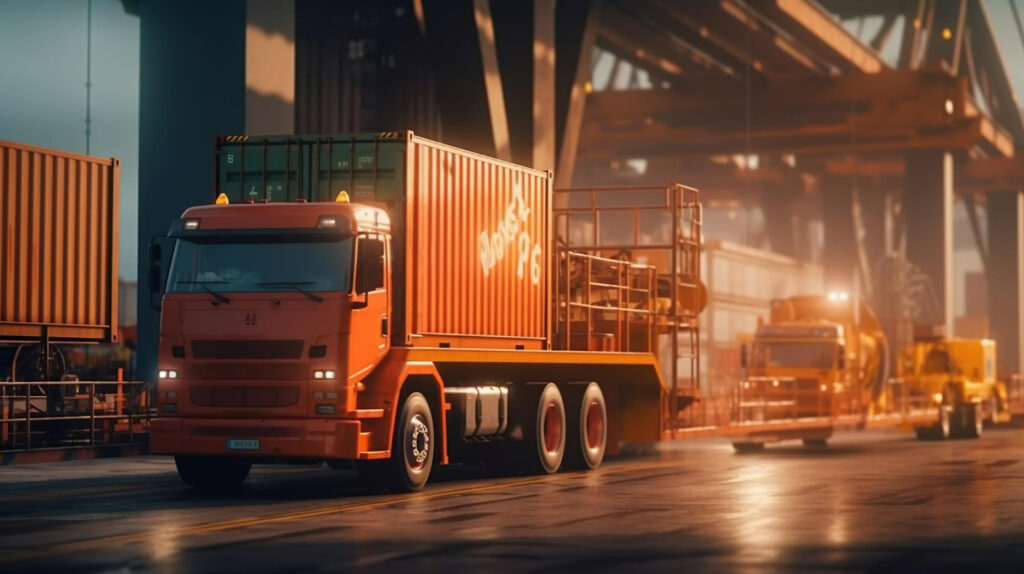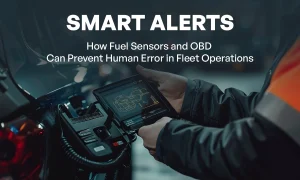In logistics and fleet management, maintaining operational efficiency while managing costs is a constant challenge. One innovative solution that has gained prominence is the implementation of a transportation control tower. This strategic approach not only streamlines operations but also significantly reduces fleet fuel costs, a major expenditure for most transportation companies.
What is a Transportation Control Tower?
A transportation control tower functions as a centralized hub for managing and monitoring transportation activities. It employs advanced technologies and data analytics to provide real-time visibility and control over the entire transportation network. By integrating various elements of the supply chain, a transportation control tower can optimize routes, manage freight effectively, and ensure timely deliveries, all while minimizing costs.
Reducing Fleet Fuel Costs with a Transportation Control Tower
1. Optimized Route Planning
One of the primary benefits of implementing a control tower in supply chain management is the enhanced visibility it provides. This visibility is not just in terms of tracking goods in transit but also in monitoring the performance of suppliers, the efficiency of logistics, and the accuracy of demand forecasts. By having a bird’s-eye view of the entire supply chain, companies can identify bottlenecks, reduce inefficiencies, and improve overall performance.
2. Improved Asset Utilization
A control tower transport system ensures better utilization of assets. By analyzing data on vehicle availability, cargo loads, and delivery schedules, it can maximize the use of each vehicle. This means fewer empty runs and more efficient cargo space utilization, leading to a decrease in the total number of trips and, consequently, in fuel consumption.
3. Enhanced Driver Performance Monitoring
Driver behavior significantly impacts fuel efficiency. A transportation control tower can monitor driving patterns such as speeding, idling, and harsh braking. With this data, companies can implement training programs to encourage fuel-efficient driving behaviors, leading to substantial fuel savings.
4. Preventive Maintenance Scheduling
Regular maintenance is crucial for keeping vehicles in optimal condition. A transportation control tower can schedule preventive maintenance, ensuring vehicles operate efficiently. Well-maintained vehicles consume less fuel, further cutting down fuel costs.
5. Real-time Traffic and Weather Updates
Traffic congestion and adverse weather conditions are notorious for increasing fuel consumption. Control tower transport systems provide real-time updates, enabling drivers to avoid these conditions as much as possible, thus saving on fuel.
6. Collaborative Shipping Opportunities
By offering a holistic view of the transportation network, a transportation control tower can identify opportunities for collaborative shipping. This practice involves combining shipments from different companies heading in the same direction, leading to fewer trips and reduced fuel use.
7. Advanced Analytics for Continuous Improvement
The power of analytics in a control tower transport setup cannot be overstated. By continually analyzing fuel consumption patterns, the system can identify areas for improvement, be it in route optimization, driver behavior, or vehicle maintenance.
The Technologies Used in Developing a Transportation Control Tower Solution
The success of a transportation control tower hinges on the sophisticated technologies that power it. These technologies not only enhance the efficiency and effectiveness of transportation operations but also play a crucial role in reducing costs, including fuel expenditure. Understanding the technological backbone of a transportation control tower is key to appreciating its full potential in revolutionizing fleet management.
1. Data Analytics and Big Data
At the core of a transportation control tower is data analytics. By harnessing the power of big data, these systems can process vast amounts of information from various sources, including vehicle telematics, weather reports, traffic updates, and shipping schedules. Advanced analytics enable the control tower to extract meaningful insights from this data, facilitating informed decision-making. This capability is essential for route optimization, load planning, and predictive maintenance, all of which contribute to fuel savings.
2. Real-Time Tracking and Telematics
Real-time tracking technologies are fundamental in a control tower transport setup. GPS and telematics devices installed in vehicles provide continuous updates on their location, speed, and operational status. This real-time visibility allows the control tower to monitor fleet movements precisely, ensuring timely interventions in case of deviations or delays. Additionally, telematics data can be used to analyze driving patterns and vehicle performance, crucial for enhancing fuel efficiency.
3. Machine Learning and AI
Machine learning and artificial intelligence (AI) play a transformative role in modern transportation control towers. These technologies enable the system to learn from historical data and improve decision-making processes over time. AI algorithms can predict traffic patterns, suggest optimal routes, and even provide recommendations for load consolidation. This predictive capability is vital for proactive planning, reducing the likelihood of fuel-wasting scenarios.
4. Cloud Computing
Cloud computing provides the necessary infrastructure for the vast data processing and storage requirements of a transportation control tower. With cloud technology, data from different sources can be aggregated and accessed in real-time, ensuring that all decisions are based on the most current information. This scalability and flexibility are crucial for managing complex logistics operations across widespread geographic locations.
5. Internet of Things (IoT)
The Internet of Things (IoT) integrates physical objects into the digital realm. In the context of a transportation control tower, IoT devices such as sensors and RFID tags play a crucial role. They provide real-time information on vehicle conditions, cargo status, and environmental factors. This information is critical for maintaining the integrity of goods, planning efficient routes, and scheduling maintenance, all of which contribute to fuel efficiency.
6. Communication Technologies
Efficient communication is the backbone of any transportation control tower. Technologies such as mobile communication, satellite connectivity, and advanced networking ensure seamless information flow between drivers, fleet managers, and the control tower. This constant communication loop is essential for responding to real-time situations and making adjustments that can lead to fuel savings.
Generate incremental revenue with Taabi’s Transportation Control Tower Solution
Taabi Mobility is at the forefront of developing AI-driven solutions for fleet and logistics management. And, the transportation control tower solutions is a striking example of Taabi’s innovation and excellence. The Control Tower Solutions can—
- Generate Incremental revenue and Profit
- Reduce operational Hassle
- Conduct Team evaluation
- Establish Operational Transparency
- Establish Team Accountability
- Identify Root Cause
- Improve Trip Reliability
The Taabi Control Tower Solution delivers the above-mentioned benefits with powerful functionalities like—real-time monitoring, predictive analytics, route optimization, driver monitoring, maintenance management, compliance management, and customer management.
Get in Touch with Taabi and learn more about the Transportation Control Tower Solution







